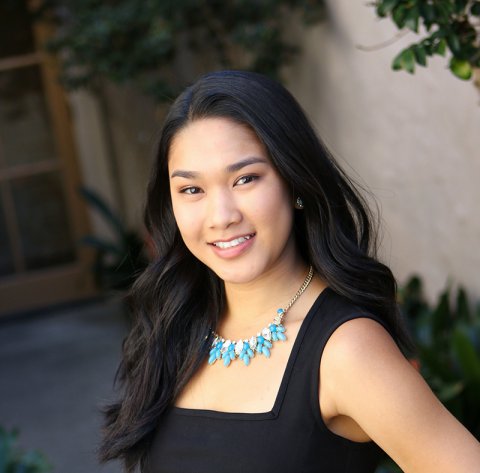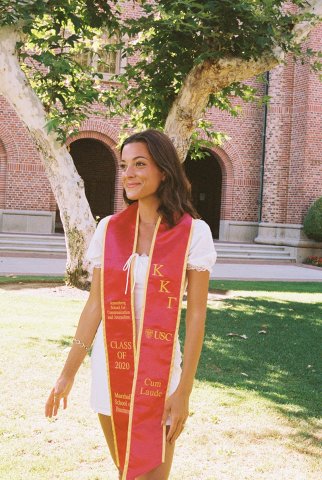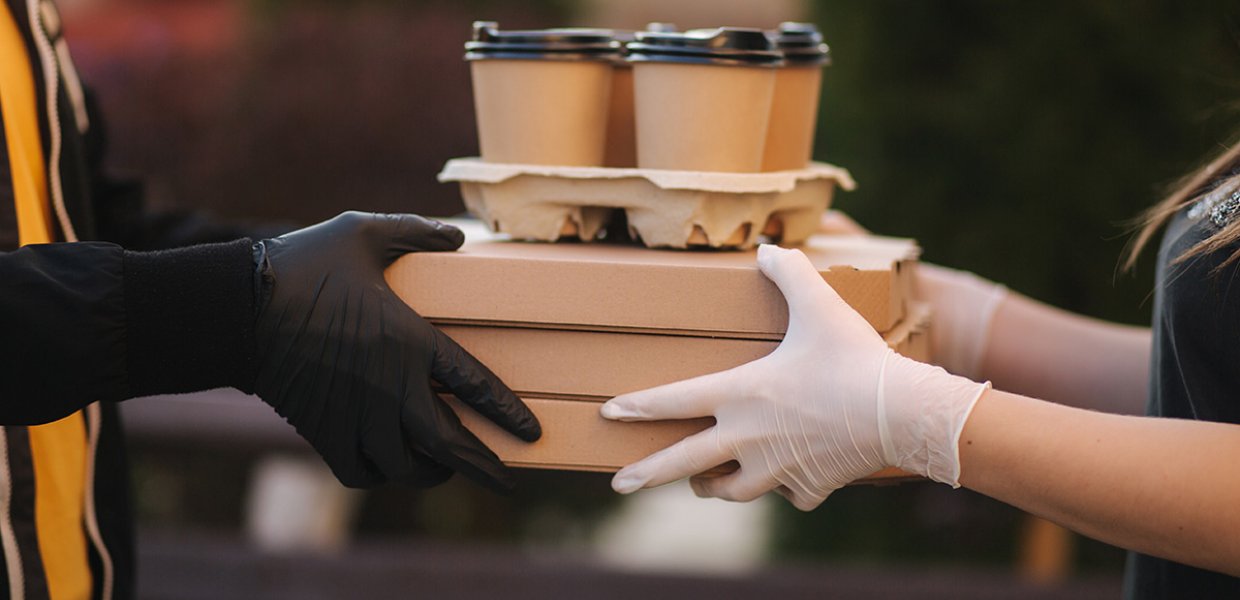Isabella Ortiz says that she knew that the “Communication and Technology” course she took in the Spring from Mike Ananny, associate professor of communication and journalism, was a perfect fit for her studies.

Ortiz and her fellow students in the course faced just such a salient technological issue: learning how to take classes online during the COVID-19 pandemic. As USC moved to remote instruction in March, Ananny and his four graduate assistants had to adapt their method of teaching — learning the kinds of lessons that they would also apply in the Fall, as USC continued delivering courses fully online.
In one of the essay assignments for the class, “I asked them to reflect on what it means to try to live pandemic life online — having them apply and extend the scholarly understandings of ‘communication,’ ‘ritual,’ and ‘technology’ that we'd been building all semester,” Ananny said.
The theory and analytical skills they were learning in class gave them tools to interrogate what was happening during the pandemic, both through the distance-learning experience, and how nearly every other communication process their lives was disrupted, changed, or both, Ananny said.
“The ritual approach to communication says, let’s think of communication as more than just the transmission of information from sender to receiver,” Ananny added. “Let's think of it as all of the social practices, values, environments and relationships that go into us making sense of the world through media.”
The papers that came back, Ananny said, were “incredibly thoughtful and timely,” exploring such topics as how clothing as form of expression changes if you're not going out; what it means to worship and commune in religious communities online; how to shop online and/or plan visits to supermarkets; and what cultural greeting rituals are like online.
Simogne Hudson, a third-year communication PhD student who was one of the TAs in the class, was impressed both with how the students adapted to the new learning environment, and by the work they turned in. “My own research focuses on how emotion, affect and memory play out through technology, and this experience has shown technology in such a bright light that we haven’t seen before,” she said. “Every paper I read offered some sort of new idea I hadn’t thought of.”
Ortiz, who graduated in May with a BA in communication, explored the impact of the COVID-19 pandemic on dining rituals, particularly in the food delivery sector.
“Food has always been one of the biggest ways that I would communicate with my friends,” she said. “Whether that's catching up with old friends, or meeting somebody new, it’s, ‘Let’s go for a coffee and chat.’ A lot of social activity is heavily centered on being able to enjoy that ritual together.”

Her paper explored how the shutdown of in-person dining affected everyone involved in the ritual of “going out to eat,” from diners to servers to cooks. Even the food-delivery people, she noted, might have a significantly disrupted experience, one where they see neither the people at the restaurant, nor the people to whom they make their deliveries.
“Those rituals are important because, when you’ve taken away that whole layer, then all you have is the transmission layer: All you’re doing is getting information or goods from point A to point B. Looking at food from a transmission perspective, you can be like, ‘I have the calories and nutrients that I need,’ but the actual enjoyment of it, the memories of being at a restaurant with your family, is lost.”
Charlotte Kelly, who graduated in May with bachelor's in communication, chose to examine the virtual classroom experience itself — what learning looks like in online classrooms and Zoom lectures, and what is lost when the ritualized experience of “going to class” is taken away.
Kelly spent most of the Spring and Summer in her native Northern Virginia. She found that turning a living space into a learning space was a real challenge. “Taking all of these classes while sitting in my childhood bedroom just kind of made it much more difficult to take it seriously and stay motivated,” she said.
“In the paper, I wrote about how the classroom experience is a community ritual, with the same group of people coming together at the same time,” she said. “To have that completely disrupted makes it harder for us to create that sense of community. Especially for this class, it was super weird going from such a huge lecture to going online.”
Kelly also wrote about how the USC community is maintained through gatherings — classes, fraternity or sorority meetings, practices and rehearsal. For her, “Things like that are a big part of what makes people feel like they go to USC and are part of the community.”
Hudson notes that, by doing work that critically examined their own communication practices during the pandemic, the students ended up creating their own kind of community.
“The class ended up becoming a therapeutic space, something they could lean on during a really confusing time,” Hudson said. “When all this was happening, I think the students were all really grateful that this coursework serendipitously fit so well with what we were all experiencing.”
